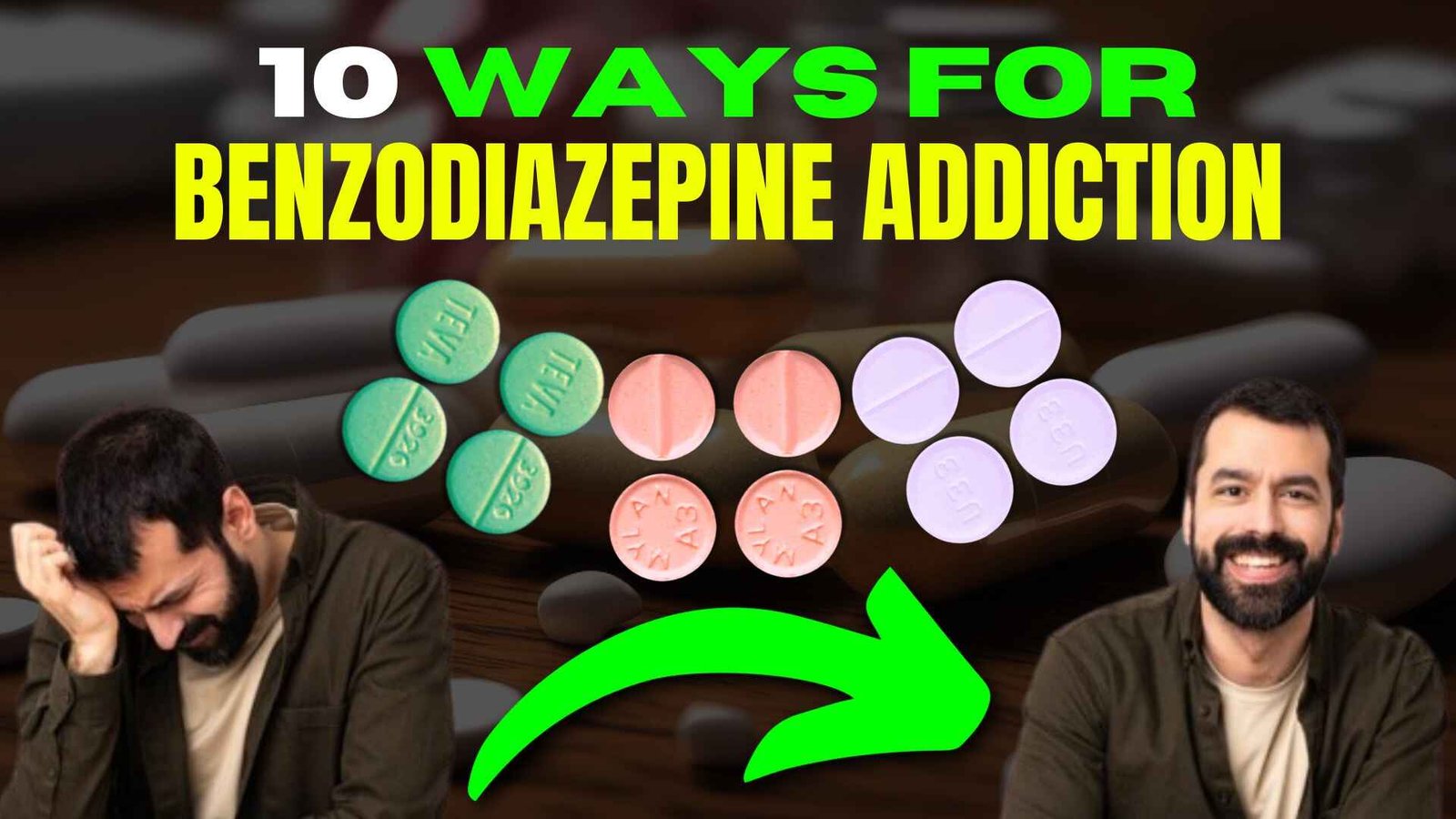Are you struggling with benzodiazepine addiction? Want to know the most effective treatment options? Discover the top 10 proven strategies for overcoming benzodiazepine dependency. How can medical detoxification, therapy, and support groups help you regain control? Find the answers here!
Benzodiazepine addiction has become a serious issue for many individuals seeking relief from anxiety, insomnia, and other mental health conditions. While these medications can provide short-term comfort, prolonged use often leads to dependence and addiction. Effective treatment is essential for those looking to regain control of their lives.
In this blog post, we’ll explore the top 10 proven ways for effective benzodiazepine addiction treatment. These strategies encompass various approaches, including medical detox, therapy, and support systems that can help individuals navigate their recovery journeys. Each method plays a crucial role in addressing the challenges of addiction, ensuring that individuals receive comprehensive care suited to their needs.
Now that we have the basics covered, let’s delve into the details. Are you ready to learn more about the top 10 proven methods for treating benzodiazepine addiction and discover effective strategies for recovery? Let’s get started and explore everything you need to know to embark on your healing journey!
What is Benzodiazepine and How Does it Work?
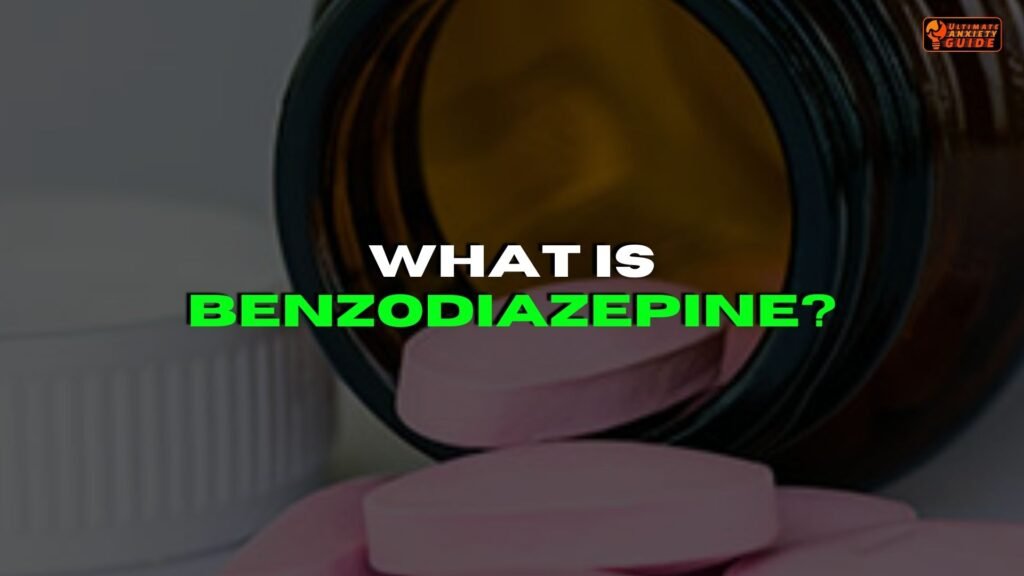
Benzodiazepines are a class of drugs primarily used to treat conditions like anxiety, insomnia, and seizures. These medications work by enhancing the effects of a neurotransmitter called GABA (gamma-aminobutyric acid) in the brain, which has a calming effect on the nervous system. In simple terms, benzodiazepines slow down brain activity, helping reduce feelings of anxiety or stress.
Doctors typically prescribe benzodiazepines for short-term use due to the risk of dependency. When used for an extended period, the body may become reliant on the drug, leading to tolerance and requiring higher doses to achieve the same effect. This makes benzodiazepine addiction treatment necessary for those who find it difficult to stop using the medication after long-term use.
It’s crucial to follow a healthcare provider’s instructions when taking benzodiazepines. Misuse or prolonged use can lead to addiction, making benzodiazepine addiction treatment more challenging. Understanding how these drugs work and their potential risks helps individuals make informed decisions about their treatment options.
10 Proven Ways for Effective Benzodiazepine Addiction Treatment
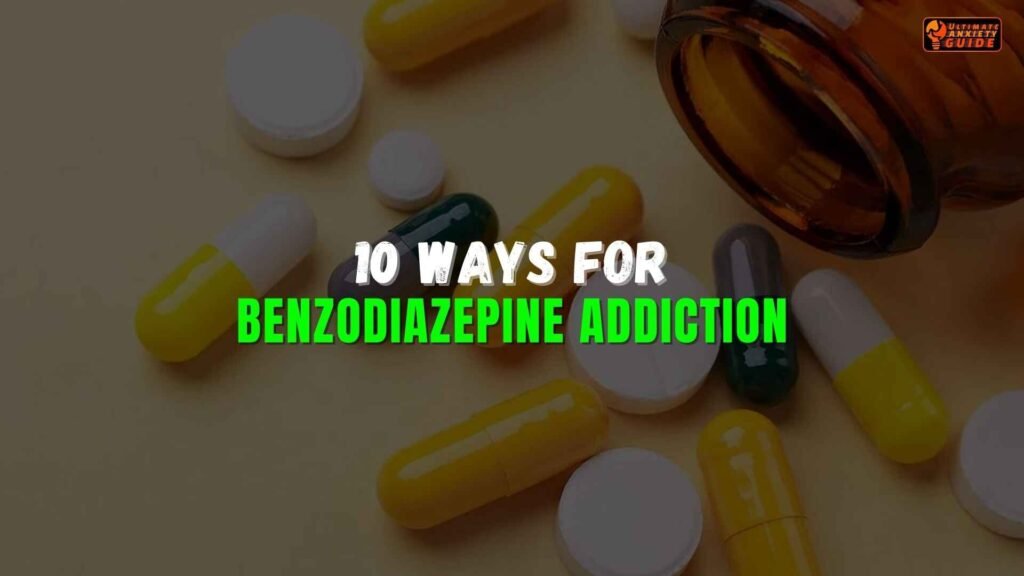
1. Medical Detoxification
Medical detoxification is a critical part of benzodiazepine addiction treatment. This process helps safely remove the drug from the body under the care of doctors. When someone has used benzodiazepines for a long time, stopping suddenly can cause dangerous withdrawal symptoms like seizures or anxiety. In benzodiazepine addiction treatment, detox is done by lowering the dose slowly to avoid these problems. Doctors monitor the patient closely during this time to ensure they are safe.
During the detox phase of benzodiazepine addiction treatment, people may feel uncomfortable, but medical staff can provide support. They might use certain medications to ease withdrawal symptoms. This makes the process easier and safer for those going through detox. It’s important to know that medical detox is just the first step in recovery. Once the body is free from the drug, other parts of the benzodiazepine addiction treatment will focus on long-term recovery and relapse prevention.
Medical detoxification sets the foundation for further benzodiazepine addiction treatment. It gives people a clean start physically and prepares them for the emotional and mental aspects of recovery. Without this step, stopping benzodiazepines on your own can be risky. That’s why detox with professional supervision is so essential. By starting with detox, benzodiazepine addiction treatment can move forward safely and effectively, helping individuals regain control of their lives.
2. Cognitive Behavioral Therapy (CBT)
Cognitive Behavioral Therapy (CBT) is one of the best therapies used in benzodiazepine addiction treatment. It helps people change how they think about stress, anxiety, and triggers that lead to drug use. In this form of therapy, individuals work with a counselor to recognize negative thought patterns and replace them with positive ones. This is a key part of benzodiazepine addiction treatment because it teaches skills to avoid relapses.
CBT sessions in benzodiazepine addiction treatment are structured and goal-oriented. The therapist helps patients identify situations that may cause them to want to use benzodiazepines again. Then, they learn coping strategies to manage these triggers without returning to the drug. This therapy doesn’t just address the addiction; it also works on underlying issues like anxiety or depression that may have contributed to drug use in the first place.
By focusing on long-term behavior change, benzodiazepine addiction treatment with CBT gives individuals tools to maintain their recovery. It helps them manage stress and emotional triggers in healthier ways. Over time, patients gain more confidence in handling difficult situations without needing drugs. CBT is an effective method in benzodiazepine addiction treatment because it focuses on creating lasting change through better mental and emotional habits.
3. Tapering Off Benzodiazepines
Tapering off benzodiazepines is a safe way to reduce the drug use gradually, which is an important part of benzodiazepine addiction treatment. In this method, the doctor slowly lowers the dose over time. This helps the body adjust to the decreasing amount of the drug. Sudden withdrawal can be dangerous, which is why tapering is recommended in benzodiazepine addiction treatment. This slow process ensures that the brain can function properly as the person comes off the medication.
Tapering is done under the close supervision of a healthcare provider. In benzodiazepine addiction treatment, the tapering schedule is individualized based on how long the person has been using the drug and the dose they are taking. The doctor monitors the patient’s progress and adjusts the plan as needed. This makes benzodiazepine addiction treatment more comfortable and less stressful for the individual, as the body gradually adapts to having less of the drug.
The tapering process in benzodiazepine addiction treatment can take weeks or months, depending on the individual’s situation. While this may seem slow, it’s the safest way to stop using benzodiazepines. Patients feel less anxious and are less likely to experience severe withdrawal symptoms when tapering is done correctly. This method is a core part of benzodiazepine addiction treatment because it allows individuals to stop using the drug in a way that protects their health and well-being.
4. Medication-Assisted Treatment (MAT)
Medication-assisted treatment (MAT) is another essential component of benzodiazepine addiction treatment. This method uses certain medications to help reduce cravings and ease withdrawal symptoms. While detox helps the body physically remove benzodiazepines, MAT helps manage the ongoing symptoms of withdrawal. MAT can make the entire process of benzodiazepine addiction treatment more comfortable and reduce the chances of relapse.
Medications used in MAT during benzodiazepine addiction treatment are prescribed by doctors and closely monitored. These medications work by affecting the brain’s receptors to reduce cravings and withdrawal effects. They help stabilize the patient during the recovery process. MAT doesn’t replace the therapy or other forms of treatment but works alongside them to make recovery smoother.
By using MAT in benzodiazepine addiction treatment, individuals can experience a more balanced and stable recovery. The medications help them focus on therapy and long-term goals rather than battling intense cravings. With the right medication support, patients have a better chance of success in benzodiazepine addiction treatment, giving them the strength and clarity needed for a full recovery.
5. Support Groups
Support groups play a key role in benzodiazepine addiction treatment. These groups connect people who are going through similar struggles, offering a space to share experiences and support each other. In a support group, individuals find encouragement and strength, knowing they are not alone in their journey. This is especially important during benzodiazepine addiction treatment, as addiction can feel isolating.
In a typical support group as part of benzodiazepine addiction treatment, people meet regularly to discuss their progress, setbacks, and feelings. These meetings provide a sense of community, which is essential for long-term recovery. Whether it’s an in-person group or an online one, connecting with others can provide the emotional support needed to stay on track. Support groups often follow a structured format, focusing on topics relevant to benzodiazepine addiction treatment.
By participating in support groups, individuals in benzodiazepine addiction treatment can gain new insights and tips for handling cravings or stress. Hearing other people’s stories helps reinforce the idea that recovery is possible. It’s a valuable way to stay motivated and committed to the journey, knowing that others are walking a similar path toward overcoming benzodiazepine addiction.
6. Inpatient Rehabilitation
Inpatient rehabilitation is a comprehensive form of benzodiazepine addiction treatment. It involves staying at a rehab facility where individuals receive 24-hour care and support. This type of program is ideal for people who need a structured environment to focus fully on their recovery. Inpatient rehab provides a safe space, away from triggers, where benzodiazepine addiction treatment can be approached with full dedication.
During inpatient rehabilitation, patients follow a strict schedule of therapy, counseling, and other recovery-related activities. The program is designed to address not only the physical aspects of addiction but also the emotional and psychological ones. Being in an inpatient setting allows individuals to fully immerse themselves in the recovery process without the distractions or temptations of daily life, which enhances the success of benzodiazepine addiction treatment.
Inpatient rehab as part of benzodiazepine addiction treatment typically lasts for several weeks or months, depending on the individual’s needs. This extended period of care gives people the time they need to build new habits and develop coping strategies. By the time they leave rehab, they are better equipped to handle the challenges of staying drug-free. Inpatient care is an intensive yet effective way to achieve long-term success in benzodiazepine addiction treatment.
7. Outpatient Programs
Outpatient programs offer a flexible approach to benzodiazepine addiction treatment. Unlike inpatient rehab, where individuals live at the facility, outpatient programs allow them to continue living at home while attending treatment sessions. This is a great option for people who have work, family responsibilities, or other commitments that prevent them from staying in a rehab center. In benzodiazepine addiction treatment, outpatient programs provide therapy, counseling, and support on a part-time basis.
Outpatient programs can be just as effective as inpatient care, especially for those with a strong support system at home. Patients still receive the same types of therapies, such as Cognitive Behavioral Therapy (CBT), but they have the flexibility to attend sessions around their daily schedule. This type of benzodiazepine addiction treatment is tailored to the individual’s needs, offering the care they need while maintaining some level of independence.
The main benefit of outpatient programs in benzodiazepine addiction treatment is that they allow individuals to practice what they learn in therapy in real-life situations. They can apply their new coping skills immediately and get feedback during their next session. This real-world practice can be valuable in helping people stay on track with their recovery goals, making outpatient care a valuable option in benzodiazepine addiction treatment.
8. Holistic Therapies
Holistic therapies are becoming increasingly popular in benzodiazepine addiction treatment. These therapies focus on healing the mind, body, and spirit, offering a more well-rounded approach to recovery. Practices like yoga, meditation, acupuncture, and art therapy are often included in benzodiazepine addiction treatment to help individuals manage stress and emotions in healthier ways.
Holistic therapies in benzodiazepine addiction treatment work alongside traditional methods, such as therapy and medication, to create a more balanced recovery plan. For example, meditation can help reduce anxiety, a common trigger for benzodiazepine use. Yoga can promote physical and mental relaxation, helping individuals stay calm and focused during their recovery. These therapies provide additional tools to help people manage the emotional challenges that come with addiction.
By incorporating holistic therapies into benzodiazepine addiction treatment, individuals can develop new hobbies and skills that support their mental and emotional health. These activities also promote self-awareness and mindfulness, which are key to staying drug-free. Holistic methods offer a complementary approach to traditional benzodiazepine addiction treatment, making the recovery process more personalized and effective.
9. Nutritional Therapy
Nutritional therapy is often overlooked but plays an essential role in benzodiazepine addiction treatment. Long-term benzodiazepine use can harm the body, depleting essential nutrients and causing health issues. In benzodiazepine addiction treatment, a balanced diet helps repair the body and restore physical health. Eating nutrient-rich foods provides energy, stabilizes mood, and supports brain function, all of which are important for recovery.
During benzodiazepine addiction treatment, nutritionists work with individuals to create meal plans that focus on healthy, whole foods. They may suggest specific vitamins and minerals that help the body heal from the effects of drug use. Proper nutrition helps stabilize blood sugar levels, reducing mood swings and cravings. This is why nutritional therapy is a crucial part of benzodiazepine addiction treatment.
By paying attention to diet, individuals can improve both their physical and emotional well-being. A well-nourished body is better able to handle the stress and emotional ups and downs that come with recovery. In benzodiazepine addiction treatment, focusing on nutrition provides a solid foundation for long-term health and stability, supporting overall recovery efforts.
10. Relapse Prevention Planning
Relapse prevention planning is a critical step in benzodiazepine addiction treatment. This involves creating strategies to handle potential triggers and challenges after treatment. Triggers can include stress, negative emotions, or social situations where benzodiazepines might be present. A good relapse prevention plan identifies these risks and prepares individuals to manage them without turning back to drugs.
As part of benzodiazepine addiction treatment, individuals work with therapists to develop personalized plans. These plans may include coping strategies like deep breathing exercises, reaching out to support groups, or distracting oneself with positive activities. Having a plan in place increases confidence and reduces the likelihood of relapse, which is crucial for long-term success in benzodiazepine addiction treatment.
Relapse is a common challenge in any addiction, but with proper planning, it can be prevented. Benzodiazepine addiction treatment that includes relapse prevention helps individuals stay focused on their recovery goals. By identifying high-risk situations and having a clear strategy in place, patients are better equipped to stay drug-free and continue building a healthy, fulfilling life.
10 Side Effects of Benzodiazepines
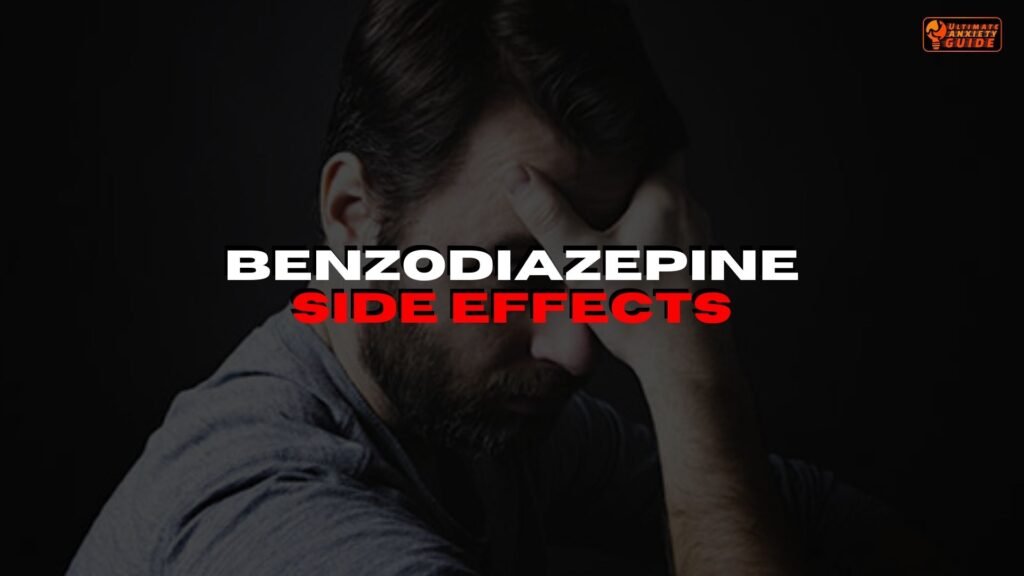
- Drowsiness: One of the most common side effects of benzodiazepines is drowsiness, which can interfere with daily activities.
- Dizziness: Many individuals experience dizziness, especially when first starting the medication.
- Memory Problems: Long-term use of benzodiazepines can lead to short-term memory issues.
- Fatigue: Feeling excessively tired or lacking energy is a frequent side effect of these drugs.
- Depression: Some individuals may develop symptoms of depression while using benzodiazepines.
- Confusion: Cognitive functions may become impaired, leading to confusion and disorientation.
- Coordination Problems: Users might notice difficulty with motor skills and coordination, increasing the risk of falls.
- Slurred Speech: Speech may become slower or less clear due to the drug’s sedative effect.
- Irritability: Some people may become irritable or experience mood swings while on benzodiazepines.
- Dependence: Perhaps the most concerning side effect is the potential for dependence, requiring benzodiazepine addiction treatment to break the cycle.
Benzodiazepine Interactions
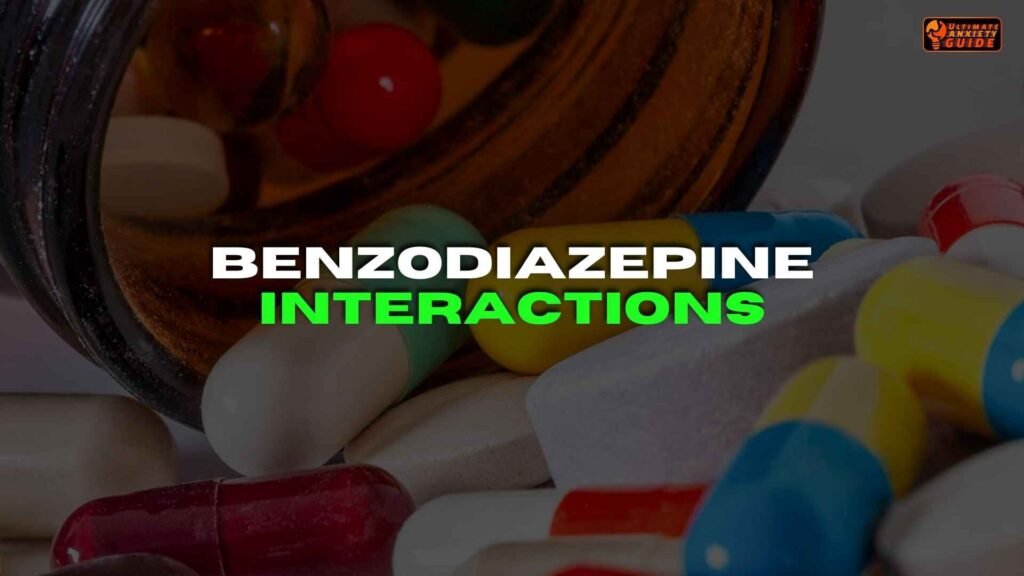
Benzodiazepines can interact with other medications, making it important to inform your doctor about any other drugs or supplements you are taking. For example, combining benzodiazepines with alcohol, opioids, or other sedatives can increase the risk of severe drowsiness, respiratory depression, or overdose.
Certain medications, such as antidepressants and antipsychotics, can also interact with benzodiazepines, potentially leading to dangerous side effects. Always discuss your complete medical history with your healthcare provider to avoid harmful interactions. Managing these interactions is an important part of benzodiazepine addiction treatment, ensuring safety during recovery.
Benzodiazepine Alternatives
If benzodiazepines aren’t the right choice for you, there are several anxiety medications that may help manage symptoms without the risk of addiction. Below is a list of common alternatives:
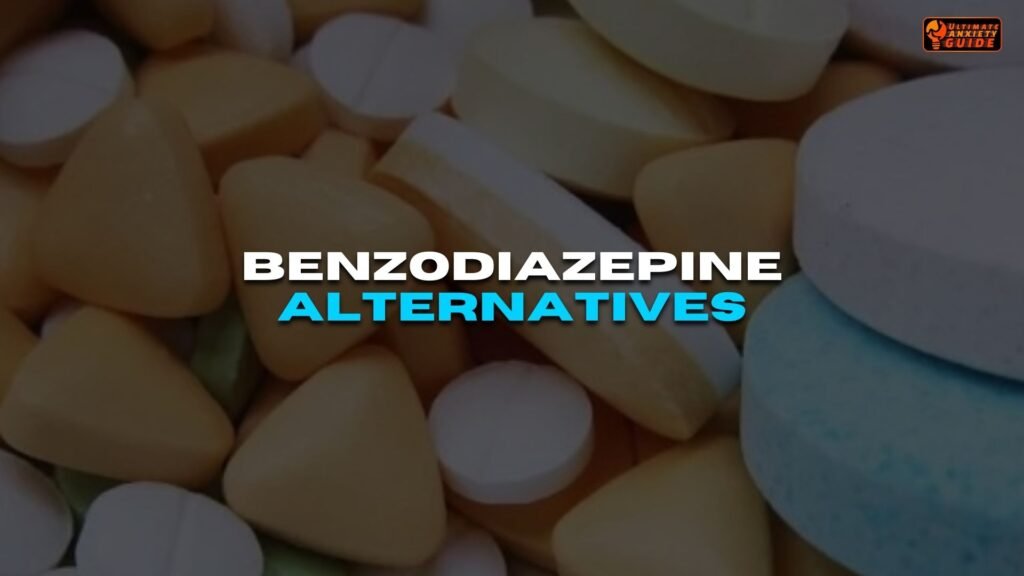
- SSRIs (Selective Serotonin Reuptake Inhibitors): Medications like Zoloft (Sertraline), Lexapro (Escitalopram), and Prozac (Fluoxetine) are commonly prescribed to treat anxiety and depression. These medications work by increasing serotonin levels in the brain, improving mood, and reducing anxiety.
- SNRIs (Serotonin-Norepinephrine Reuptake Inhibitors): Cymbalta (Duloxetine) and Effexor (Venlafaxine) are examples of SNRIs that help balance serotonin and norepinephrine levels, effective for anxiety and depression.
- Buspirone: A non-benzodiazepine anxiolytic that is often used for generalized anxiety disorder (GAD). Buspirone is less likely to cause dependency than benzodiazepines.
- Beta-Blockers: Medications like Propranolol are typically used to manage physical symptoms of anxiety, such as rapid heart rate or tremors.
- Tricyclic Antidepressants (TCAs): Amitriptyline, Nortriptyline, and Imipramine are older classes of antidepressants that can help treat anxiety, although they are less commonly used today due to side effects.
- MAOIs (Monoamine Oxidase Inhibitors): Nardil (Phenelzine) and Parnate (Tranylcypromine) are used in some cases of anxiety but have strict dietary restrictions and interactions, making them less favorable for long-term use.
- Hydroxyzine: An antihistamine with sedative properties, Hydroxyzine Pamoate, can be effective for the short-term management of anxiety without the risk of addiction.
- Trazodone: Often used as a sleep aid, Trazodone can also help manage anxiety, especially in people who struggle with insomnia.
- Gabapentin: Although primarily used for seizures, Gabapentin has shown some effectiveness in treating anxiety disorders.
- Pregabalin: Similar to Gabapentin, Pregabalin can be used to reduce anxiety, particularly in cases of generalized anxiety disorder (GAD).
- Antipsychotics: In some cases, low doses of antipsychotics like Quetiapine (Seroquel) may be used to treat anxiety, especially when other treatments haven’t worked.
- Benzodiazepine Alternatives in therapy include Cognitive Behavioral Therapy (CBT), mindfulness techniques, and lifestyle changes such as exercise and diet. These non-medication approaches are essential components of benzodiazepine addiction treatment and anxiety management.
Dosage and Administration
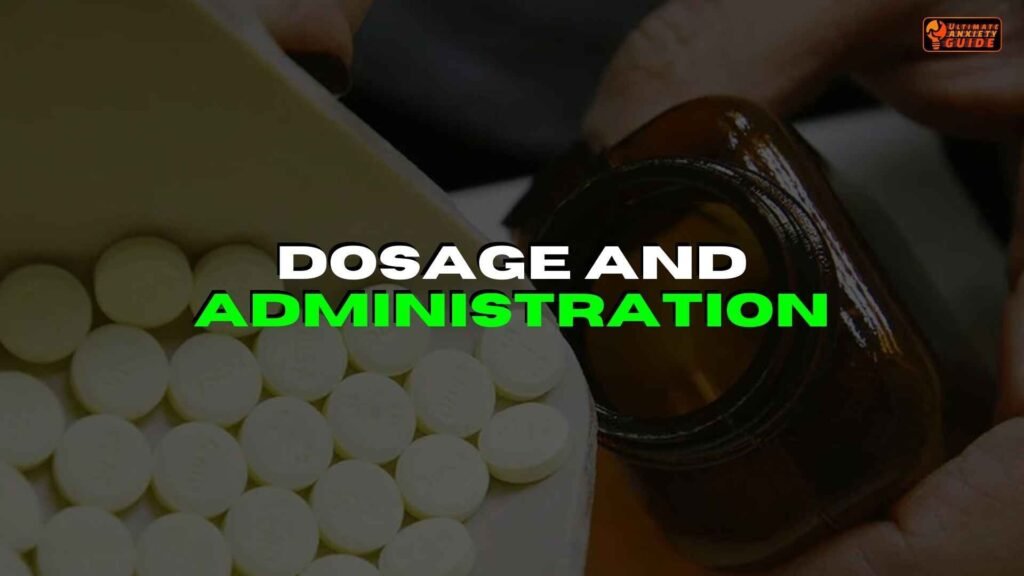
The dosage of benzodiazepines will vary depending on the condition being treated, the individual’s response, and the specific type of benzodiazepine. It’s crucial to follow the prescribed dosage carefully to avoid dependency. Doctors typically start with the lowest effective dose and adjust as needed. However, even at low doses, prolonged use can lead to tolerance and addiction, requiring benzodiazepine addiction treatment.
Administration guidelines usually recommend taking benzodiazepines only for short periods. For example, they are often prescribed for a few weeks to manage acute anxiety or sleep issues. Misuse or overuse increases the risk of addiction, making benzodiazepine addiction treatment necessary for long-term users.
When and How to Use Benzodiazepines
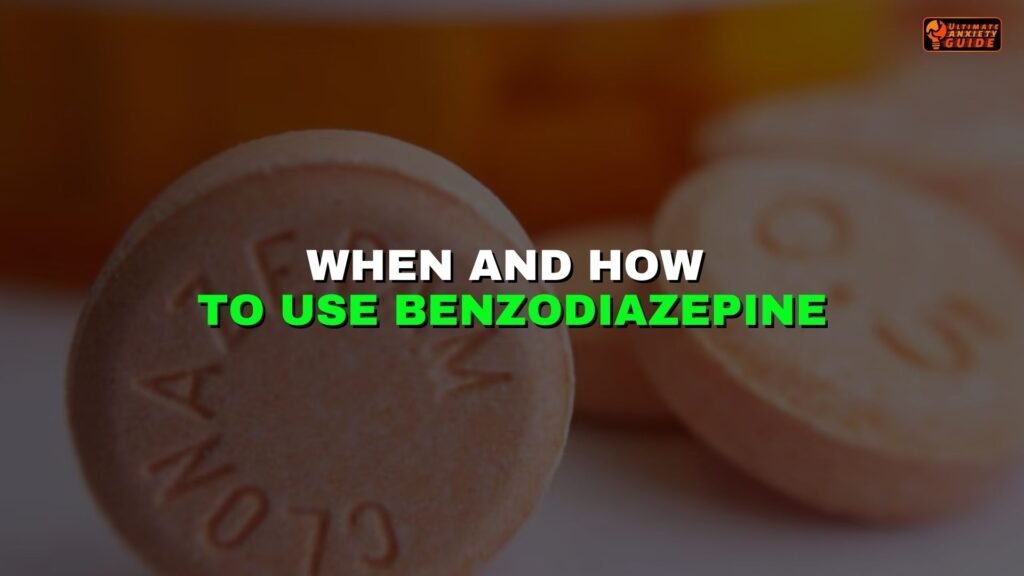
Benzodiazepines should be used only as directed by a healthcare provider. They are often prescribed for short-term relief of anxiety, panic attacks, or sleep disorders. In most cases, these medications are taken once or twice a day, depending on the specific condition and its severity. It’s important not to exceed the prescribed dose or frequency to avoid developing a dependency that could lead to benzodiazepine addiction treatment.
If you miss a dose, do not double up on the next one. Take the medication as soon as you remember, but if it’s close to the time for your next dose, skip the missed dose. Always follow your doctor’s advice closely when using benzodiazepines to avoid complications.
Important Considerations
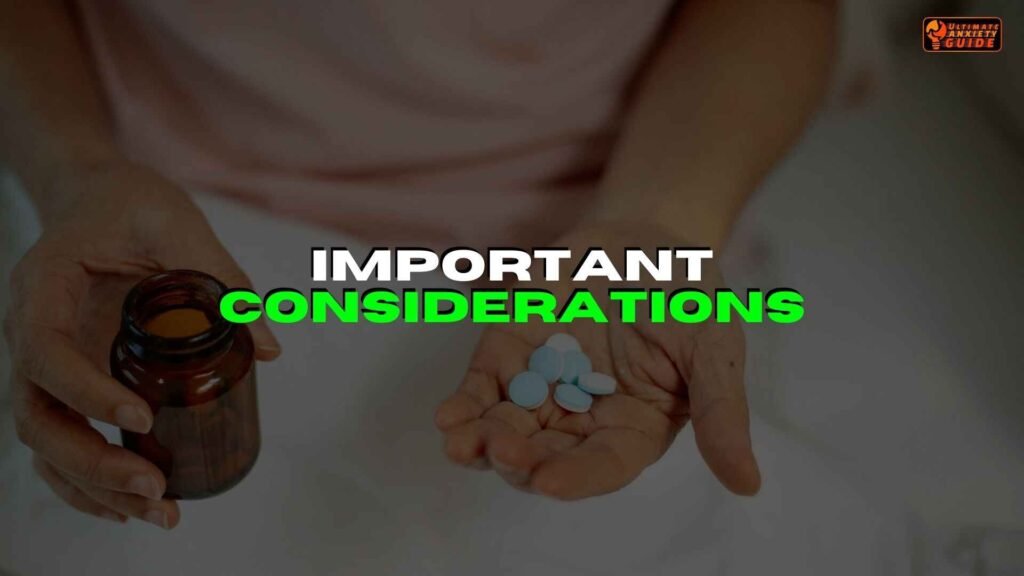
There are several important considerations to keep in mind when using benzodiazepines. First, these medications should only be used under strict medical supervision. Misuse can lead to serious consequences, including dependency and the need for benzodiazepine addiction treatment. Additionally, people with a history of substance abuse should use these medications cautiously, as they may be more prone to addiction.
It’s also important to consider the side effects and possible interactions with other medications or substances. Avoiding alcohol and other sedatives while taking benzodiazepines is essential to prevent dangerous reactions. Always inform your healthcare provider about your complete medical history to ensure the safe use of benzodiazepines.
Conclusion
Benzodiazepine addiction treatment is a comprehensive process that includes detox, therapy, medication-assisted treatment, and ongoing support. For those struggling with benzodiazepine dependency, a combination of medical and therapeutic approaches is essential for recovery. Whether through inpatient rehab, outpatient programs, or support groups, individuals can find the help they need to overcome addiction and regain control of their lives.
Final Thoughts
Overcoming benzodiazepine addiction may seem overwhelming, but it’s important to remember that recovery is possible. Through the right benzodiazepine addiction treatment, whether it’s medication, therapy, or a combination of approaches, many individuals have successfully regained control over their lives. It’s a process that takes time, patience, and support, but each step brings you closer to a healthier, addiction-free future. Surrounding yourself with a strong support system and staying committed to the treatment plan can help you overcome even the toughest challenges.
You have the strength to take back your life and build a brighter future. With the right help and a positive mindset, you can overcome benzodiazepine addiction and find new hope. Every day is a step toward a better tomorrow, and seeking help is the first and most important decision you can make. Stay strong, and believe in your ability to recover and live a fulfilling, drug-free life.
Engage with Us
Alright, dear visitors,
That’s all from my end. As of now, I’d love to hear from you—share your thoughts and experiences in the comments below. For more mental health-related content and updates, stay in touch with Ultimate Anxiety Guide and keep connected. If you want to connect personally, feel free to email us at ultimateanxietyguide@gmail.com.
Thanks a trillion for your time and effort.
Happy Browsing!
FAQs
